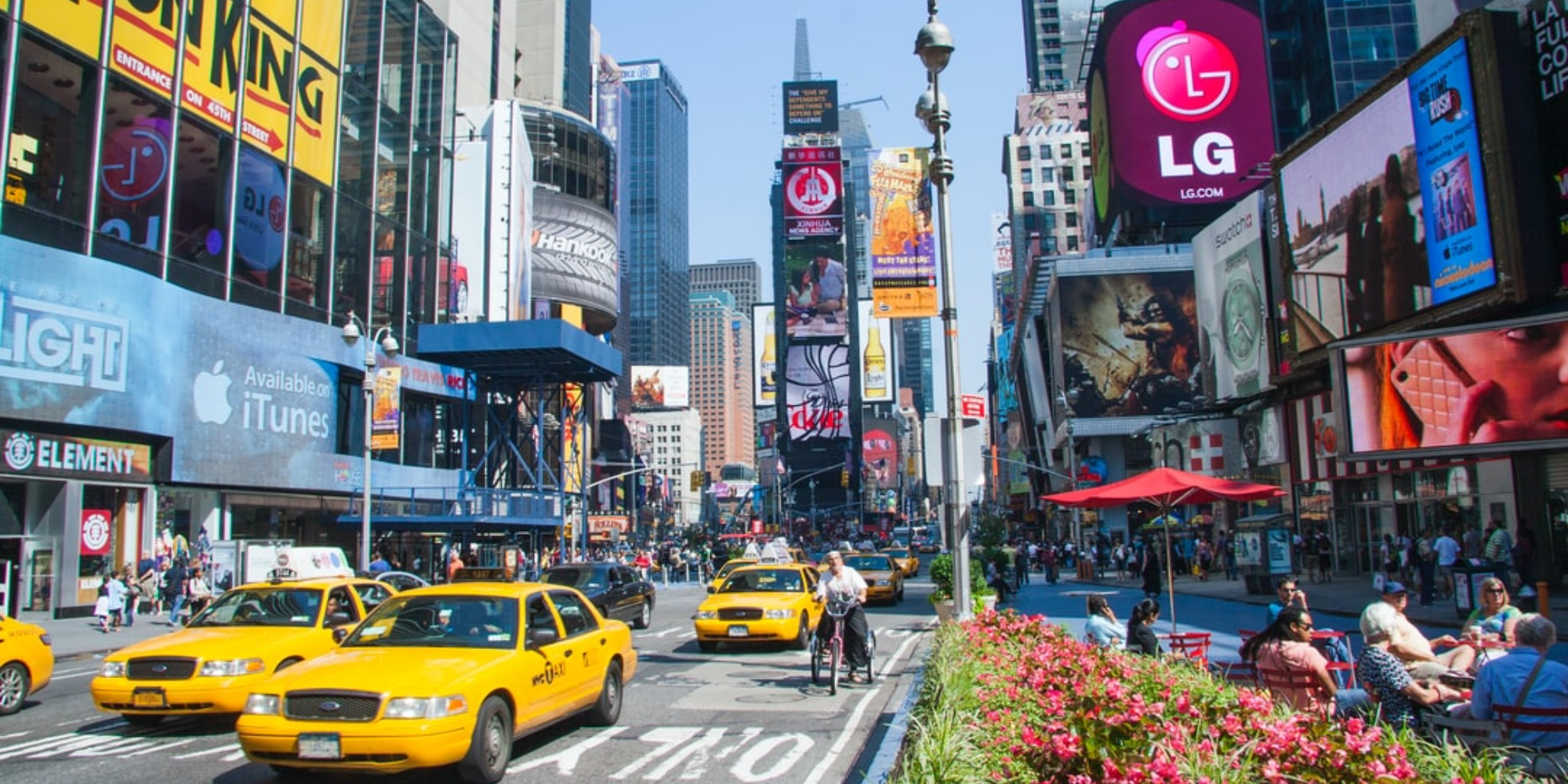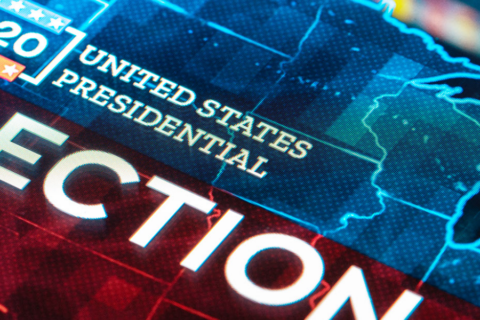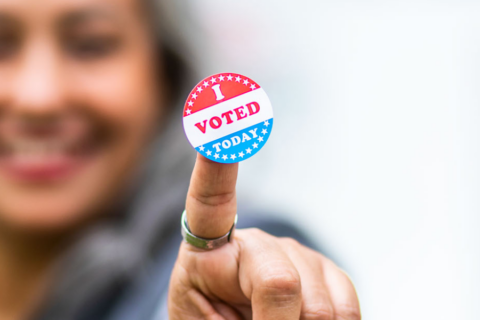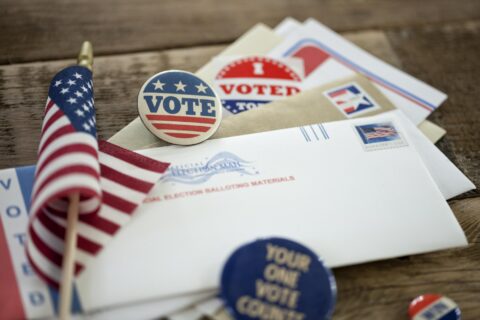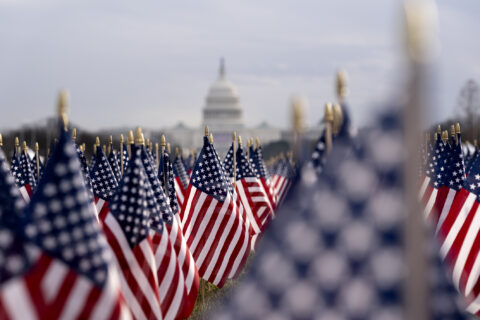Cities, towns and villages across the United States have an unprecedented set of challenges on their hands: how can they hold safe, fair, and free elections in the midst of a global pandemic and a climate of uncertainty? We looked at how three big cities have taken on these questions.
Spotlight: Detroit
In Detroit, Teamwork Is the Name of the Game
In Michigan, Detroit City Clerk Janice Winfrey, Secretary of State Jocelyn Benson, and other prominent city leaders have are working together to tackle problems. After the August primary was beset by challenges, Winfrey and Benson announced a partnership to ensure success ahead of the November general election. The partnership has support from Wayne County Executive Warren Evans, Wayne County Clerk Cathy Garrett, and Detroit Mayor Mike Duggan, as well as all four of the city’s professional sports teams.
Detroit will “become the first city in the nation with all four of its top professional sports teams—the Detroit Red Wings, Tigers, Pistons and Lions—engaged with the city to promote voter education, provide staff with election day off to serve as election workers, and use their arenas and sports facilities to support election administration,” according to a September 2nd announcement.
In order to meet the need for well-trained poll workers, Mayor Duggan said that Detroit would be “basically shutting down city government for two days and putting all the city employees at the Clerk’s disposal.” In addition, Blue Cross Blue Shield of Michigan, Quicken Loans, and area banks are diverting workers to assist the City Clerk’s Office. As an added effort to ensure that poll sites have the necessary staff, the City has substantially raised poll workers’ pay—from $175 to $500—due to a recent grant. As of the first week of October, Detroit’s efforts seem to have paid off, as the city deployed 10,000 poll workers across the city.
The Department of Elections is responsible for making sure that every resident in Detroit has the opportunity to register to vote and to exercise their right at their designated polling location. You can access information on elections at https://detroitmi.gov/departments/elections.
Spotlight: Philadelphia
Philadelphia Invests in First-Time Voters
Launched in 2019, Philadelphia’s First Vote 2020 aims to “engage and include young people who have never voted before in the upcoming 2020 election.” The combined effort of the Office of Youth Engagement, Philadelphia Youth Commission, and the Committee of Seventy, with the support of the Mayor’s Office of Education, the School District of Philadelphia, and the Office of the Philadelphia City Commissioners, the First Vote initiative focuses on “Gen-Z” voters and has adjusted to meet the challenges of voter engagement in a global pandemic.
Using “VRTees,” or “voter registration t-shirts,” volunteers are able to engage with peers, friends, and family while sporting QR codes that link to the Pennsylvania voter registration application and to request a mail-in ballot—dispensing with the need for First Vote 2020 Ambassadors to stand in high-traffic areas, come into close contact with people, or handle paper forms.
First-time voters will also be able to document their experiences using the hashtag #FirstVotePHL, which and First Vote 2020 created a PSA featuring young people. “Even if I’m not old enough to vote yet, I’m going to spend the next 2 months convincing you to vote,” says 17-year-old Mia, one of the stars of the video, “because our schools are on the ballot.”
Philadelphia’s Office of Youth Engagement is a part of the Office of Public Engagement. You can find out more at https://www.phila.gov/departments/mayors-office-of-youth-engagement/. Learn more about voting issues in Philadelphia at https://www.philadelphiavotes.com.
Spotlight: New York City
DemocracyNYC Reaches Out Across the Five Boroughs
DemocracyNYC—an initiative from the Office of the Mayor—launched in 2018 and seeks to increase civic engagement, and ensure elections are as easy and as accessible as possible for all New York City residents. With COVID-19 disrupting in-person outreach and voter registration drives, the team quickly pivoted to digital tools like public service announcements and text banking apps to relay the necessary election information to constituents.
Since June, DemocracyNYC has texted hundreds of thousands of voters through city-procured software on topics such as poll worker recruitment and encouraging unregistered residents to make a voting plan. The peer-to-peer texting software allows volunteers to text more than 100 voters per minute from the comfort of their homes and return to conversations that need further attention. If a voter has a question about their polling place, volunteers can walk them through the process of looking up the right location prior to election day. For the November election, NYC is sending targeted text reminders to encourage voters to stick to their voting plan and vote as early as possible. Peer-to-peer texting also allows cities to target specific populations, like young people, who are more receptive to information via text message.
In recognition of shifting media trends, DemocracyNYC has produced Public Service Announcements (PSAs) in partnership with civically aligned agencies across the city government including Know Your Rights at the Polls and Right to an Interpreter. The PSAs have aired in audio format on Spotify, iHeart Radio, and Pandora and as videos on YouTube, Premion, Hulu, and social media. DemocracyNYC also translated their PSAs into the top twelve languages spoken within the five boroughs to ensure all voters have accessible information.
DemocracyNYC continues working to reduce barriers to voting and civic engagement within New York City. We would love to continue the conversation! If you have any questions about our best practices, how to stand up these programs in your own city, or want to share any cool new ideas with us please reach out to Eve Grassfield at egrassfield@mofellow.nyc.gov.
